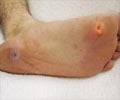The Australian medical association has called on the government to tax 40 cents for every 100 grams of sugar added to drinks, to curb obesity and tooth decay.

High Sugar Intake Taking Toll on Health and Oral Hygiene of Australians
Even though there are proven links to poor health outcomes, Australians drink at least 2.4 billion liters of sugary drinks every year, which is enough to fill 960 Olympic-sized swimming pools. 36 percent of adults and 41 percent of children drink sugar-sweetened beverages at least once a week, while 9 percent of adults and 7 percent of kids drink them daily.‘Sugary drink tax increasing 16% to the price of a regular can of fizzy drink would bring out great health benefits to Australians.#SugaryDrinks #ToothDecay #DentalHealthWeek’





These worrying figures highlight the impact of sugary drinks on children and adults suffering from chronic diseases (1✔ ✔Trusted SourceThe role of sugar-sweetened beverages in the global epidemics of obesity and chronic diseases
Go to source). Hence, Australia should follow the lead of other countries and put a tax on sugary drinks.
Apart from general health, sugary drinks also affect oral health. Tooth decay was the most prevalent chronic disease in Australia, costing a whopping $4.5 billion in 2019. Sugary drinks contribute to tooth decay through their acidity action and being a source of nutrition to bacteria in the mouth.
Loss of tooth structure contributing to pain, loss of function, aesthetic changes, and bad breath are the effects of acidity contributed by sugary drinks. Potentially preventable hospitalizations for dental diseases were seen in 10 in 1000 children aged 5–9 years. Whereas, untreated tooth decay is present in 1 in 4 Australian children and 1 in 3 adults.
Fresh Calls for Sugar Tax on Soft Drinks to Save Lives
Sugar-sweetened beverages have also contributed to Australia’s obesity crisis. AMA’s research shows that imposing a tax on selected sugary drinks would reduce sugar consumption from soft drinks by 12 to 18 percent, which might lead to far better health outcomes (2✔ ✔Trusted SourceA Salient Sugar Tax Decreases Sugary-Drink Buying
Go to source).
The tax would also raise $749 to $814 million in revenue each year, which could be invested into preventative health initiatives to improve the health and well-being of Australians. But a broad range of measures would be required to tackle social and cultural inequities that prevent regular dental care.
Even the Dental Health Week campaign stressed the greater impact of poor oral health. Several studies revealed the link between oral health and numerous chronic diseases including cardiovascular disease, type 2 diabetes, and Alzheimer’s disease.
Advertisement
Henceforth, Australia should follow the lead of other countries and put a tax on sugary drinks. A new report found Australia was behind more than 85 countries and jurisdictions and risked being the odd one out if it didn’t implement the tax.
References:
- The role of sugar-sweetened beverages in the global epidemics of obesity and chronic diseases - (https://www.nature.com/articles/s41574-021-00627-6)
- A Salient Sugar Tax Decreases Sugary-Drink Buying - (https://journals.sagepub.com/doi/10.1177/09567976211017022)
Source-Medindia









